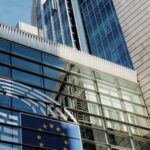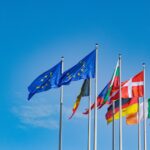The 2030 Agenda for Sustainable Development places respect for human rights at the heart of its commitments to each of the SDGs (Sustainable Development Goals). It is a major responsibility in every sector, particularly in finance and investment. The proliferation of laws and regulations requires financial players to take human rights into account in their investment decisions. Ksapa has joined forces with France Invest to lead a working group to create a toolkit providing methodological support for private markets investors.
Regulations and Laws to know
Regulations in force
- The European Taxonomy – aims to classify economic activities that have a favourable impact on the environment (climate change mitigation, transition to a circular economy, pollution control, etc.) and thus encourage investment in green activities.
- The CSRD (Corporate Sustainability Reporting Directive) or NFRD (Non Financial Reporting Directive) – a European directive that will come into force in 2023, requiring companies, both large and small, to publish a comprehensive non-financial report, which will in turn help to build trust between companies, investors and consumers. CSRD is expected to properly articulate with ISSB.
- The Duty of Vigilance Act – obliges major French companies to draw up, publish and implement appropriate measures to identify risks and prevent violations of human rights and fundamental freedoms, human health and safety, and the environment. EU’s CS3D is expected to reinforce and expand duty of vigilance scope to a greater scale of companies and issues along the value chain.
Using the Guidance Provided by the PRIs (Principles for Responsible Investment)
The PRI have been working on these issues for years, but have struggled to put them into practice. In order to understand the consequences of environmental, social and governance issues on investments and to help signatories integrate them into their investment and shareholding decisions, the PRI (Principles for Responsible Investment) have drawn up 6 guiding principles:
- Integrate ESG issues into investment analysis and decision-making processes;
- Be an active investor by integrating ESG issues into investor policies and practices;
- Requiring entities in which investors invest to publish appropriate information on ESG issues;
- Promote acceptance and application of the principles among asset management stakeholders;
- Improve efficiency in implementing the principles
- Report individually on investment activities and progress in applying the PRI recommendations.
However, human rights instruments are often not legally binding and vary from one juridiction to another, preventing concerted action and complicating the responsible investment process. This is why Ksapa, a leading global platform in human rights working with numerous financial institutions, in partnership with France Invest, the leading platform gathering most key players in France, has set up a working group. The group’s aim is to analyze due diligence and enable 14 private equity companies to align themselves with the issues of human rights in value chains. Ksapa is already working on these issues with various players. France Invest would like to strengthen the methodological content developed by its various working groups, in particular the issues of circularity on the one hand and respect for human rights on the other.
Leading a Working Group Helping Private Markets Investors Adopt Consistent Human Rights Practices
Through this working group, Ksapa is sharing expertise already extensively working with global financial companies on human rights to consolidate a toolbox, tested by private equity firms contributing to the collaborative effort. This toolkit aims to help private markets investors adopt consistent human rights practices, and make more informed investment decisions.
Designing an Open Source Toolkit
The aim of the toolkit is to help investors and holding companies to assess and integrate human rights considerations into investment decisions – all along the decision tree, encapsulating as many aspects of the asset’s value chain as possible. The toolkit should be adaptable to any size of company, clarify human rights regulations, help investors map human rights risks, and obviously be operational and easy to use.
In order to create a simple, harmonized framework, a number of stages have been predefined:
- Step 1: Identify the key stakeholders and the human rights impacts on each of them
- Step 2: Analyze the risks incurred in the country identified
- Step 3: Perform due diligence on the beneficiary company based on EFRAG’s 12 ESRS standards and relevant ESG standards (sector materiality sources, database of 300+ thematic standards).
- Step 4: Draw up an action plan with a decision tree structured around a “GO / NO GO” logic to feed the granularity of the analysis and the trade-offs to be discussed by the Investment Committee.
- Stage 5: Monitoring the implementation of the action plan and tracking progress
Ongoing Working Group Facilitation
The working group alternates between group discussions, individual reviews of documents prepared by Ksapa, and 1:1 discussions between each management company and Ksapa.
To begin with, it was essential to address the issue of regulations and to review the regulatory landscape and build alignment between private equity firms on its application across investment decisions in asset management activities.
Following the presentation of the regulations to the working group, Ksapa collected the initial feedback and challenges faced by each participant to build a customizable and adaptable toolbox designed around a set of specifications meeting the diverse needs of management companies: fund of funds, development capital, senior debt, etc.
In order to personalize the toolkit and provide concrete examples, the working group was split into small groups to work on specific case studies. This work in small groups made it possible to focus on more concrete and simplified situations and identify issues, solutions and standards supporting investment decision.
A toolkit was then drawn up, to be enriched by a series of tests carried out by the private equity firm contributors themselves: Practice, practice, practice.
Outcome and Next Steps
The investment market is complex, subject to multiple regulations, where risk analysis is often shaped by contradictory injunctions. Setting up a working group on human rights issues gathering concrete private investor practitioners enables us to share experiences, align on the obstacles we encounter making informed investment decisions mitigating human right risks, and provide greater clarity in the operating procedure to be adopted in response. Working on concrete cases is essential to really simplify the process and to give investors the keys so that they can then act individually. However, each asset management company must adapt the method to its own strategy, policies, mandates and the contextual and operational reality of the assets studied.
Solène part of Ksapa's consulting team, working notably on human rights and sustainability.
With a keen interest for climate issues and circular economy, she has previously worked within Beiersdorf’s Sustainability Team where she tackled issues of responsible sourcing and human rights.
Solène holds a Master's in marketing and communication, as well as a master in creative industries and social innovation from the EDHEC Business School.
She speaks French, English and Spanish.






